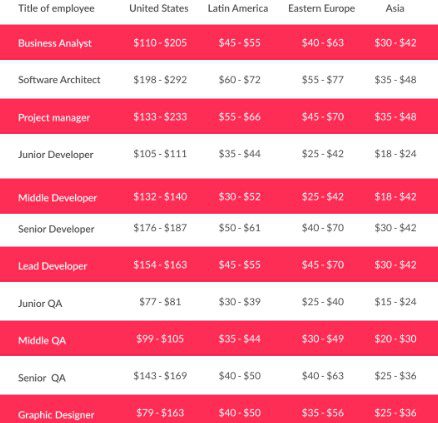Launching your dream project is exhilarating, and when it pays off financially, it’s the icing on the cake. However, many aspiring entrepreneurs stumble due to initial mistakes, with 42% of apps failing because they lacked market demand.
To circumvent such pitfalls, building a Minimum Viable Product (MVP) for startups is a strategic move. But what is an MVP? Let’s delve into its definition and the reasons that make it essential for your startup.
What Is an MVP, and Why Does Your Startup Need It?
Unveiling the MVP Concept
MVP stands for a Minimum Viable Product, a crucial tool for assessing a product’s market potential. For instance, if you’re developing a startup app, creating an MVP allows you to test its feasibility and scope. The benefits extend far beyond, and we’ll explore them shortly.
Now, let’s unravel why building an MVP is imperative for your startup.
Reasons to Embrace MVP Development
-
Pandemic Opportunities
- Amidst global lockdowns, opportunities arise. With increased free time due to restrictions, launching a time-killing application like a game can be lucrative.
-
Market Growth Insights
- The global mobile application market is expected to grow at a CAGR of 11.5% from 2020-27. Identifying high-growth sectors like eCommerce, Education, Gaming, Medical, and AI is crucial for your MVP.
-
Long-Term Profitability
- MVPs offer cost-saving benefits and insights into user expectations. By understanding the market, you avoid the pitfalls that lead 34% of startups to fail.
Exploring MVP Development Costs
Factors Influencing MVP Cost
Building an MVP involves critical decisions, and one of the primary considerations is cost. Let’s explore four options with varying price points.
Option 1: Hire Freelancers [Cheap and Cheerful]
Quick, cheap, and accessible, hiring freelancers seems enticing. Platforms like freelancer.com, upwork.com, and fiverr.com offer a pool of developers. However, the drawback lies in their lack of commitment and potential project disruptions.
- Full-stack developer: $6,000/month
- Designer: $5,000/month
- Tester: $2,500/month Total Cost: Up to $13,000/month
Option 2: Build an In-House Team [Expensive and Transparent]
Opting for in-house development promises transparency and clear communication. The team’s dedication is a plus, but the significantly higher cost could pose challenges for startups on a limited budget.
- Full-stack developer: $9,200/month
- Designer: $3,600/month
- Tester: $4,100/month
- Project Manager: $7,500/month Total Cost: $25,000/month
Option 3: Hire a Local Team [If You Have Unlimited Budget]
Local development ensures dedicated teams and documented processes but comes with a hefty price tag, making it suitable for those with deep pockets.
- Team rates: $100 to $250 per hour Potential Cost: Up to $64,000/month
Option 4: Outsource MVP Development [Reasonable Cost, Reliable Results]
Outsourcing strikes a balance between cost and reliability. Despite challenges in building trust and team integration, it remains a popular option for many startups.
- Outsourcing agency (e.g., Ukrainian): $30 per hour Total Cost: Up to $19,000/month

Outsource MVP Development
The Summary of MVP Development Cost
The actual MVP cost varies based on team type, location, hourly rates, and expertise level. Careful consideration of these factors empowers you to control the MVP price effectively.
- Freelancers: $13,000
- In-House Team: $25,000
- Local Agency: Up to $64,000
- Outsourcing Agency: Up to $35,000
Additional MVP Costs to Consider
- Prototype UX/UI: Up to $10,000
- App Development: $15,000 to $50,000
- Landing Page Development: $2,000
Real-Life Examples for Insight
Factors Determining MVP Price
Business Part
Idea Validation
Validating your idea is crucial for market acceptance. MVPs provide a cost-effective means to test your application’s potential, as demonstrated by success stories like MailChimp and Airbnb.
Discovery Phase
This phase offers insights into competitors, market trends, target audience, and business goals. Early discovery facilitates effective budget planning.
Technical Part
Complexity Levels
Apps vary in complexity, impacting development time and costs. Categorizing apps as Simple, Average, or Highly Complex helps estimate expenses.
Design Part
UX/UI Design
Design plays a pivotal role, with costs ranging from $1,500 to $7,500 based on factors like location, team type, design complexity, and time period.
MVP Development Process Overview
The lean startup MVP follows a systematic approach, transforming ideas into profitable, scalable products. The five stages emphasize idea validation, user journey mapping, MVP requirement prioritization, development, and product launch.
Conclusion
Understanding how much it costs to build an MVP involves analyzing numerous factors. The business, technical, and design aspects play pivotal roles, influencing overall expenses. By systematically navigating through the development process and factoring in all costs, startups enhance their chances of success in a competitive market.